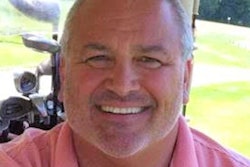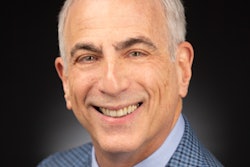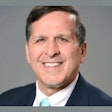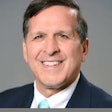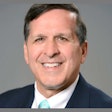
I am deeply troubled by the escalating conflict between dentists and hygienists as we emerge from the belly of the beast that is COVID-19. The emotional hijacking we've all been through has caused so many of us to activate our "fight, flight, or freeze" instincts. These instincts have caused people on all sides of these conflicts to abandon their executive-level thinking.
 Alan Stern, DDS.
Alan Stern, DDS.Look at what's happening: Hygienists feel unsafe and don't want to work and/or don't want to use their ultrasonic scalers. The inevitable backlash ensues. I've heard a story of a hygienist being shamed by her coworkers for wearing a hair cover. Dentists are frustrated because their incomes and ability to make payroll and keep the lights on are threatened by an eight- to- 10-week shutdown. Personal protective equipment (PPE) is in short supply, prices have risen dramatically, and there is a lack of clarity as to what is and is not necessary and what is and is not overkill in protecting everyone in the dental office.
The saddest part is that people who have spent their lives working with each other for the common good are now divided in the presence of a very potent threat.
As the Temptations sang in the 1970s, it's a ball of confusion. At a time when the dental profession and each office need unity, some of us, instead, are fighting amongst ourselves. This will amount to nothing good.
The good news is that these issues are addressable with very learnable skills in leadership, conflict resolution, shared vision, mission, team building, safe spaces, and good hiring.
Everyone is a leader
Let's talk today about leadership. The truth is that you and every person on your team is a leader, serving one segment or another of the practice. The truth, also, is that our leadership skills are way more important than our clinical skills for our fulfillment, profitability, and effectiveness for our patients.
Your administrative team leads patients through the often confusing and stressful world of finance, logistics, and insurance. The administrative team needs to create a conversation with each patient so that they are willing to follow the administrator's lead. I have seen front desk and management personnel behaving on the phone and in person in ways that are really lovely and in ways that are, shall we say, not so lovely. Patients will not want to follow or engage with an administrator they don't like. And team members will work begrudgingly behind an office manager who slings orders and behaves in anything but a creative, kind, and constructive manner.
How not to be a leader
I have seen dental hygienists, often with the best of intentions, try to lecture adult patients in a condescending way and then refer to them as "grunge mouths" behind their backs. And I have seen dental hygienists lovingly and gently meet patients where they are and guide them to good decision-making and habits. There is no room or need for shame in dentistry -- or anywhere, for that matter. An office with a condescending attitude will have a much harder time retaining patients and also succeeding in helping people get well.
I will never do business or put my trust in any organization that does not treat me with at least a minimum level of respect. And I will never follow a so-called leader who does not give me a good reason to follow him or her.
I have seen team members and dentists mumble, gossip, and grovel about each other in ways that are both personally ugly and professionally 100% unacceptable. And I have seen teams behave in a loving, mutually supportive manner.
Behaviors reflect leadership, the lack of which is the root cause of many problems in all workplaces and is particularly destructive in a dental office, which needs to instill confidence, trust, and inspiration for one another and for those it serves.
How did we get here?
How did we get to this point? I believe the answer is complex, but let's understand that times have changed for the better and we need to respond to those changes.
Although we are educated and have -- to one degree or another -- mastered our craft, we must be humble enough to know that we need one another. As dentists, we need our hygienists, not as laborers subject to our dictates, but as co-diagnosticians, nurturers, and therapists working for the common good. Hygienists need their dentists not merely as sources for paychecks, but as allies in the mission of the practice, which, hopefully, is to do something of value for those it serves.
And the very same principles hold true for administrators and assistants. Without one another, we would lack jobs, purpose, and paychecks.
Without humble, principled leadership, our efforts become disjointed, conflict simmers until it boils over, and nasty, avoidable problems like the one between doctors and hygienists become ugly and damaging.
It can all be avoided by leadership. But let's understand that leadership is not making a decision, giving an order, and expecting unquestioning compliance. The current PPE wars, I believe, are a direct result of a faulty model of leadership in some offices. When confronted with a problem or challenge in a practice, unilateral decision-making often is a mistake. A decision not only affects everyone in the practice but also needs the input of those who see the problem from a different point of view.
What leadership is and isn't
Leadership, as I learned from Mary Osborne and Joan Unterschuetz, is nothing more and nothing less than a conversation designed for mutual growth and learning with a bias toward action. Think about this: If we, as leaders, sit down with our teams and air out all sides of an issue with the clear objective of learning and problem-solving, the team and the patients it serves all win. If a confrontation occurs, tensions will rise, sides will be taken, divisiveness will occur, and there will always be a winner triumphing and pounding his or her chest (as in the case of the shaming of the hygienist who wore a hair covering) and a loser left shamed, angry, and sulking. What good can possibly come of this?
Good leadership begins at the top of the organization. If we can lead with an open mind as well as an open heart, establishing safe spaces for people to freely express their ideas without fear or shame, we can create a culture of true growth and, I dare say, love.
This sounds simplistic, but its implementation will take a lot of (learnable) skill. In my next articles, I'll talk about conflict resolution, vision, mission, clarity, safe spaces, and effective hiring.
For now, let's think of leadership as we struggle our way through this (temporarily) difficult time for all of us. Let's listen to one another. Let's get good scientific information and put our heads and hearts together for the good of our offices and our teams. And let's take that culture and those skills to our patients, who need to feel safe and secure as we help them get healthy. If we can do this, we will get through the tough times and come out better, happier, and more profitable than ever!
Alan Stern, DDS, is a practicing dentist, an American Council on Exercise-certified health coach and behavior change specialist, and the founder and operator of Better, Richer, Stronger. After struggling for the first 30 years of his career, he found prosperity by restructuring his practice around his own unique core values and happiness. Dr. Stern can be reached by email.
The comments and observations expressed herein do not necessarily reflect the opinions of DrBicuspid.com, nor should they be construed as an endorsement or admonishment of any particular idea, vendor, or organization.




